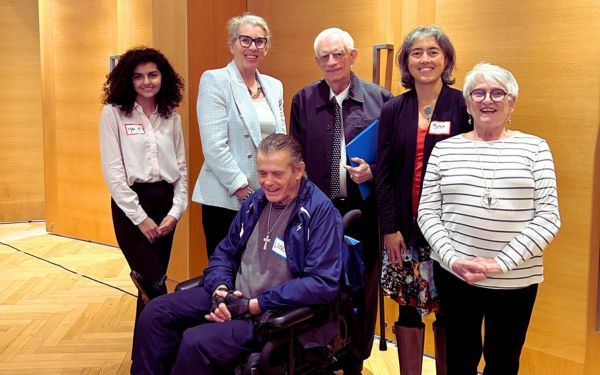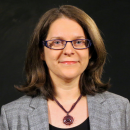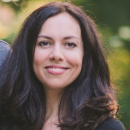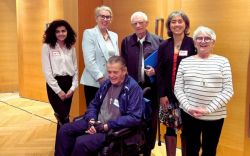
DAC Knowledge Mobilization Consultation Supports Successful Grant Application


DAC Knowledge Mobilization Consultation Supports Successful Grant Application
By kristalamb | Posted date: January 30, 2024 |
In 2023, the Diabetes Action Canada Knowledge Mobilization (KM) Consultation Service launched. The program, led by Dr. Monika Kastner and Julie Makarski, is designed to help research teams successfully integrate KM tools into their projects.
Knowledge mobilization helps move research from idea to implementation, and is an incredibly meaningful part of the process.
That’s why the DAC team is thrilled to announce the first funded research project to come out of the consultation program. Dr. Osnat Melamed from INTREPID Lab at the Centre for Addiction and Mental Health in Toronto worked with the DAC KM team on her grant, Helping Women with Diabetes Quit Smoking: A Gender-Informed Approach to Brain Health, which was recently funded by the Canadian Institutes for Health Research Knowledge Synthesis and Mobilization Grants on Brain Health and Reduction of Risk for Age-related Cognitive Impairment
Melamed is a family doctor whose practice focuses on addiction and smoking cessation. Her research works on ways to help smokers quit, as well as to adapt smoking cessation treatment to meet the needs of specific groups. “In Canada, around 12% of adults still smoke. And those who do tend to come from socioeconomic-disadvantaged populations. Individuals who smoke often face mental health challenges which interfere with quitting success,” she explains. “My research looks at how we can tailor smoking cessation programs to meet the needs of specific groups for whom quitting proves difficult.”
One such group her team is focused on is women. Programs to help people quit smoking often don’t differentiate between the barriers that women may face compared to men, or the unique reasons they may have started to smoke in the first place. Tailoring smoking cessation support for women may improve their odds of quitting.
Her team is also investigating how type 2 diabetes and mental health or addiction issues make quitting more challenging . “This grant looks at tailoring treatment for smoking cessation for women with diabetes. We did the calculation that in Canada there are probably more than 200,000 women with diabetes who also smoke,” she says. Knowing that smoking with diabetes increases overall risk for heart attacks, strokes, dementia and other complications, it seemed wise to work on a tailored approach to help women managing both. “Hopefully helping them quit smoking with a women-specific approach could also improve their diabetes control and prevent some of these adverse outcomes.”
The plan is to look at the research literature to find women-specific programs that are available for smoking. Then, the team will look for ways to tailor this further for women with diabetes through consultation with Patient Partners and a multidisciplinary research and clinical care team.
Knowledge mobilization will be critical to the success of this project, so Melamed was eager to work with the DAC KM team to ensure all elements were considered from the start. “Many of us researchers, we know some things about knowledge mobilization, but we are rarely experts. It’s a science in its own right. Having the opportunity to sit down with a person who has this knowledge and expertise and has supported previous grants to really explain the breadth of things you could do for knowledge mobilization was fantastic.”
For Melamed, this consultation helped her see where she should consult potential users ahead of starting her project to ensure what she was hypothesizing was something that was actually helpful to the expected end user. This, she explains ensures that you don’t work on something for a year only to have the people you want to support find the project confusing or unhelpful. “
“Integrated knowledge translation basically says that if you want to have greater uptake of your research output, you need to really get everyone to the drawing table right from the beginning and design your product or your solution in a way that’s tailored to the needs of this population.”
The consultation process, she says, gave her a lot of clarity about the ingredients she would need for her grant, and also for the end product to be successful. She loved that the process was not just a one-off conversation. Melamed had two meetings with the DAC KM team and then was able to go back and forth with emails throughout the process—allowing her to ask questions whenever she needed to clarify something for her grant application. “It improved my understanding as a researcher, and it helped my grant because I could show that we’re doing to do this great research, but it’s not done in isolation. It’s not siloed. It’s going to be done in collaboration with a lot of people.”
The DAC Knowledge Mobilization Consultation Program is available to all researchers and trainees in our Network. Learn more!
Story written by Krista Lamb.
Featured in Article
Related Webinars
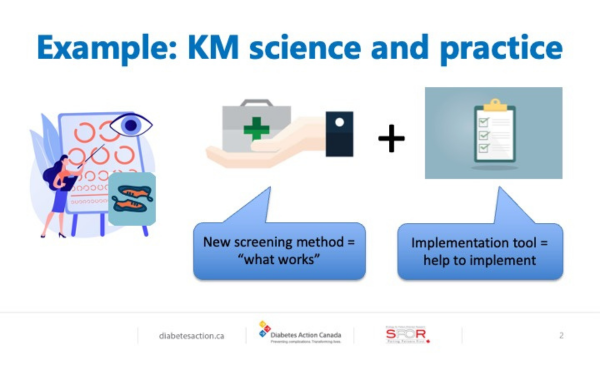
HOW to do Knowledge Mobilization

The WHERE of Knowledge Mobilization

WHAT is KM and WHY is it important?
Associated Programs

Knowledge Mobilization and Evaluation
Related Articles

Knowledge Mobilization Consultation Service
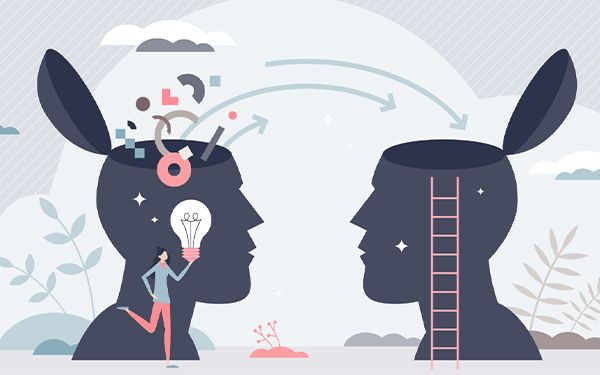
Diabetes Canada Provides Funding Support for Knowledge Mobilization Program
